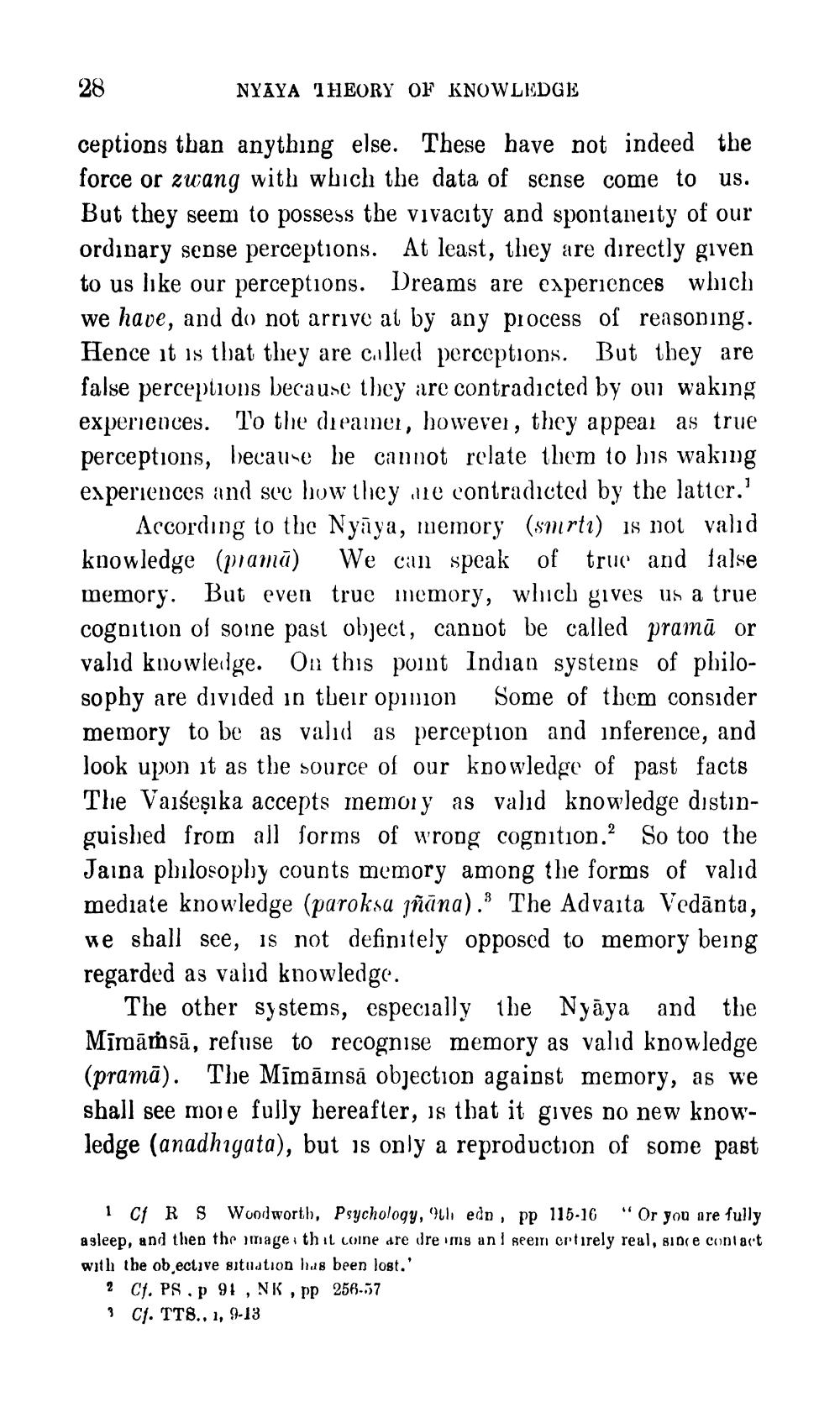________________ NYAYA THEORY OF KNOWLEDGE ceptions than anything else. These have not indeed the force or zwang with wbich the data of sense come to us. But they seem to possess the vivacity and spontaneity of our ordinary sepse perceptions. At least, they are directly given to us like our perceptions. Dreams are experiences which we have, and do not arrive at by any process of reasoning. Hence it is that they are culled perceptions. But they are false perceptions because they are contradicted by oui waking experiences. To the dreamer, however, they appear as true perceptions, because he cannot relate them to his waking experiences and see how they are contradicted by the latter.' According to the Nyaya, memory (smrti) is not valid knowledge (prama). We can speak of true and false memory. But even true memory, which gives us a true cognition of soine past object, cannot be called pramu or valid knowlerige. On this point Indian systems of philosophy are divided in their opinion Some of them consider memory to be as valid as perception and inference, and look upon it as the source of our knowledge of past facts The Vaisesika accepts memory as valid knowledge distinguished from all forms of wrong cognition. So too the Jaina philosophy counts memory among the forms of valid mediate knowledge (paroksu jnana).: The Advaita Vedanta, we shall see, is not definitely opposed to memory being regarded as valid knowledge. The other systems, especially the Nyaya and the Mimamsa, refuse to recognise memory as valid knowledge (prama). The Mimamsa objection against memory, as we shall see more fully hereafter, is that it gives no new knowledge (anadhigata), but is only a reproduction of some past 1 Cf R S Woodworth, Psychology, Illi edp, pp 115-16 "Or you are fully asleep, and then the image that come are drems an deem crtirely real, 810(e contact with the ob,ective situation has been lost.' 2 CH. PS. p 91, NK , pp 256-57 3 C.TT8., 1, 9-13




